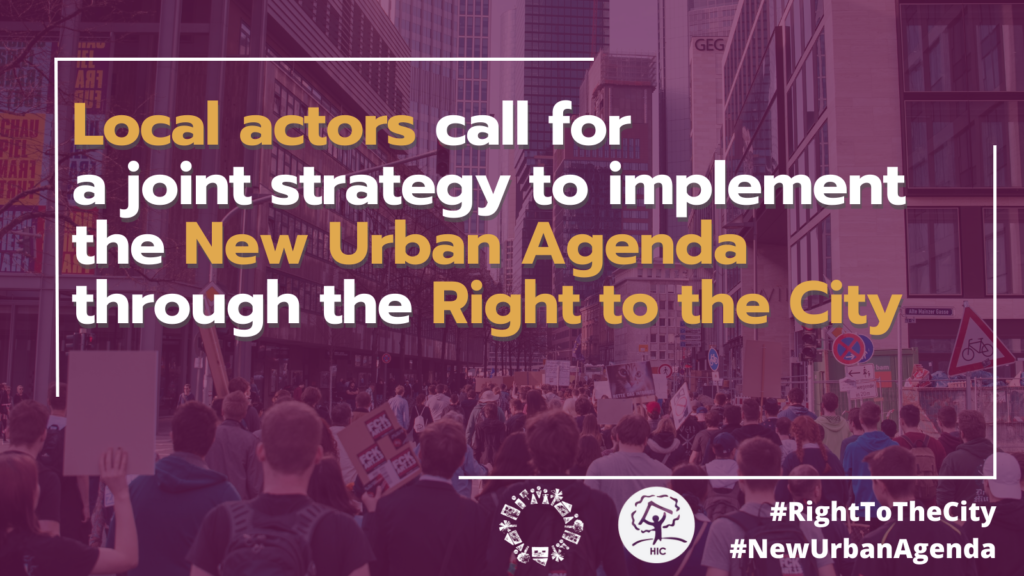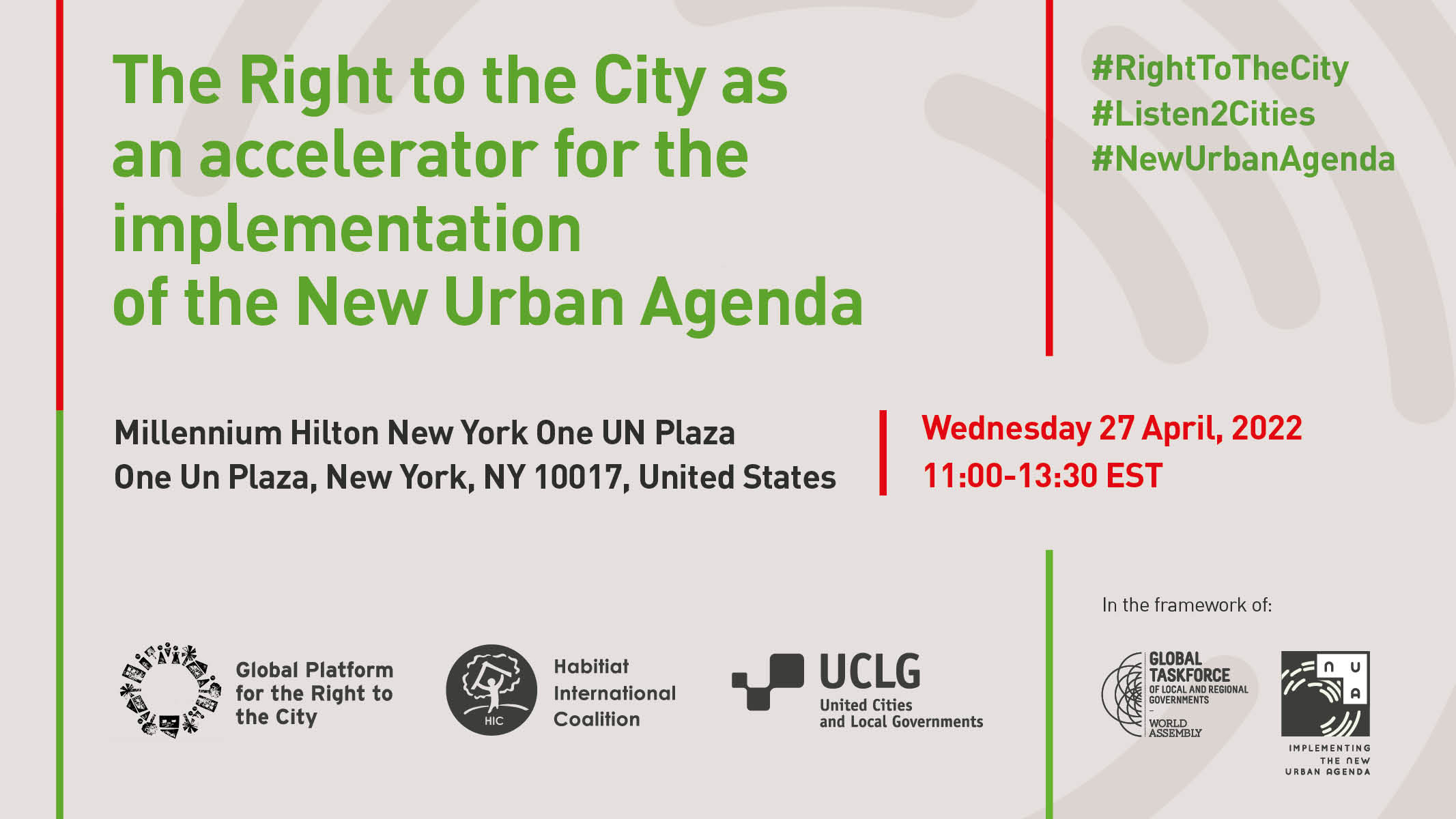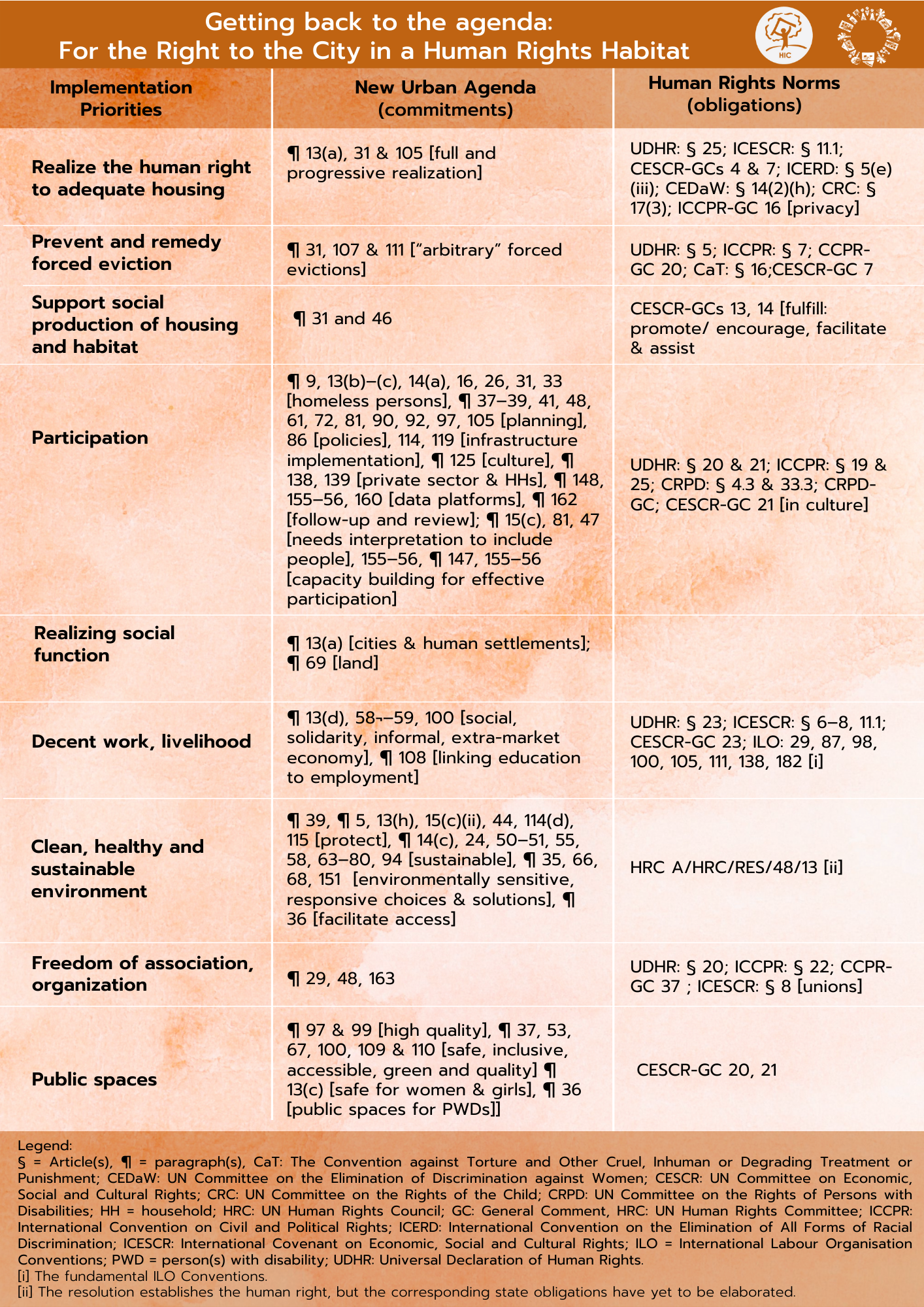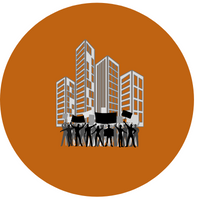
HIC reaffirms its commitment to contribute to the implementation of the New Urban Agenda, the third global Habitat Agenda since 1976. It also welcomes the UN Secretary General’s recent Quadrennial Report, which contains a rich repertoire of global efforts by states and their spheres of government, UN agencies, civil society and private sector under the NUA’s principal operational themes: urban policies, urban governance, urban planning, municipal finance and technology.


Getting Back to the Agenda
HIC Statement on the Occasion of the NUA+5 Implementation Review
Reflecting on the findings of the new Quadrennial Report and experience at negotiating and monitoring the NUA, we commit to contributing to further progress in the following areas of NUA-implementation engagement:
- Increasing the NUA’s visibility within our constituencies as a more-specific complement to other legal obligations and policy commitments of our states and their organs, including local governments and authorities;
- Filling the normative and operational gaps in NUA implementation, monitoring and evaluative reporting, in particular, demonstrating and building awareness of the links between specific NUA commitments and their corresponding prior, permanent and binding human rights obligations;
- Working with UN-Habitat to develop and seek long-term and predictable financing, institutional capacity and reasoned political will for the implementation and monitoring of the NUA and the long-promised and still-needed self-organized stakeholder-engagement mechanism in conjunction with the UN Habitat Assembly and subsidiaries;
- Supporting the self-expressed priorities, needs and experiences of citizens and communities, especially women, impoverished persons and communities, older persons, indigenous peoples, people under occupation, persons with disability, youth, minorities and other marginalized groups, as well as the organizations supporting them.
HIC Calls for:
- Working toward a holistic approach to NUA implementation, prioritizing its more-progressive commitments, including those cited above, but which remain omitted from monitoring and reporting instruments and practices to date;
- In particular, fulfilling the social function of property, land and human settlements by strengthening collective social, cultural and environmental interests over neo-liberal economic policies and market-driven corporate interests;
- Also promoting and supporting the social production of housing and habitat, as states committed to do in the NUA;
- Ensuring that the participatory and fairness principles and practices of solidarity economy are operationalized as a function of NUA implementation;
- Operationalizing the democratic management of cities and territories, ensuring that all human-settlement inhabitants exercise their human right to meaningful participation in local political, development and city-management processes;
- Enforcement of the prohibition against forced evictions and full reparation for such gross violations,34 in accordance with international law;
- Duty holders, including states, their organs and other responsible parties, to make reparations to victims of gross violations of habitat-related human rights, both in peacetime and in situations of conflict, occupation and war;
- Reconciling the digital divide that separates North and South and socio-economic strata within states;
- Implementing genuine decentralization with the necessary capabilities and resources in the local sphere to ensure that local governments and authorities can make effective decisions to fulfill inhabitants’ human rights in the context of human settlements.

Agenda


Under the framework of the High Level Meeting, the Global Platform for the Right to the City, Habitat International Coalition and United Cities and Local Governments are organizing a side event to discuss perspectives and challenges for advancing the Right to the City under the efforts for implementing the New Urban Agenda and beyond.
The event will seek to build upon the mobilization of civil society organizations and local governments that succeeded in securing the inclusion of the Right to the City in the final text in 2016, evaluating and discussing how the last five years have impacted the Right to the City movement and what strategies can be put forward to further advance on securing and implementing the Right to the City in the present and future.
Analysis and debates are expected to address pressuring concerns of the present moment, marked by inertia around NUA implementation, setbacks in regulatory and institutional frameworks, and the convergence of the crises linked to the increasing socio-spatial inequalities, the financialization of key goods and services and the climate emergency.
Date: April 27th, 11h-13h (NYC time),
Location: Millennium Hilton New York One UN Plaza , One Un Plaza, New York, NY 10017, United States.
The event will be in person only, but stay attentive for upcoming debates in May to be held online as to follow-up on the discussions held in May and advance on next steps.

Crossings between Human Rights obligations, the New Urban Agenda commitments and the Right to the City


About the High-Level Meeting

Member States will gather in New York for the High-Level Meeting of the General Assembly on 28 April 2022 to review progress on the implementation of the New Urban Agenda six-years after its adoption at the Habitat III Conference in Quito, Ecuador.
Member States, local and regional governments, and other constituencies of the New Urban Agenda such as professional associations, grassroots organizations, and business leaders will utilize the platform to highlight policy directions and programmatic initiatives they have been engaged in, and to put forward concrete commitments for the next two years.
The meeting will stream live-virtual, without any need for registration, on UN WebTv and UN Youtube.




